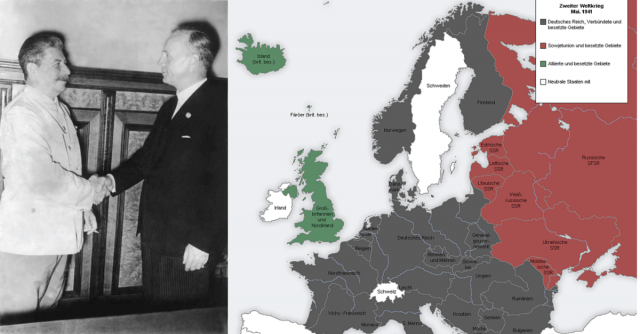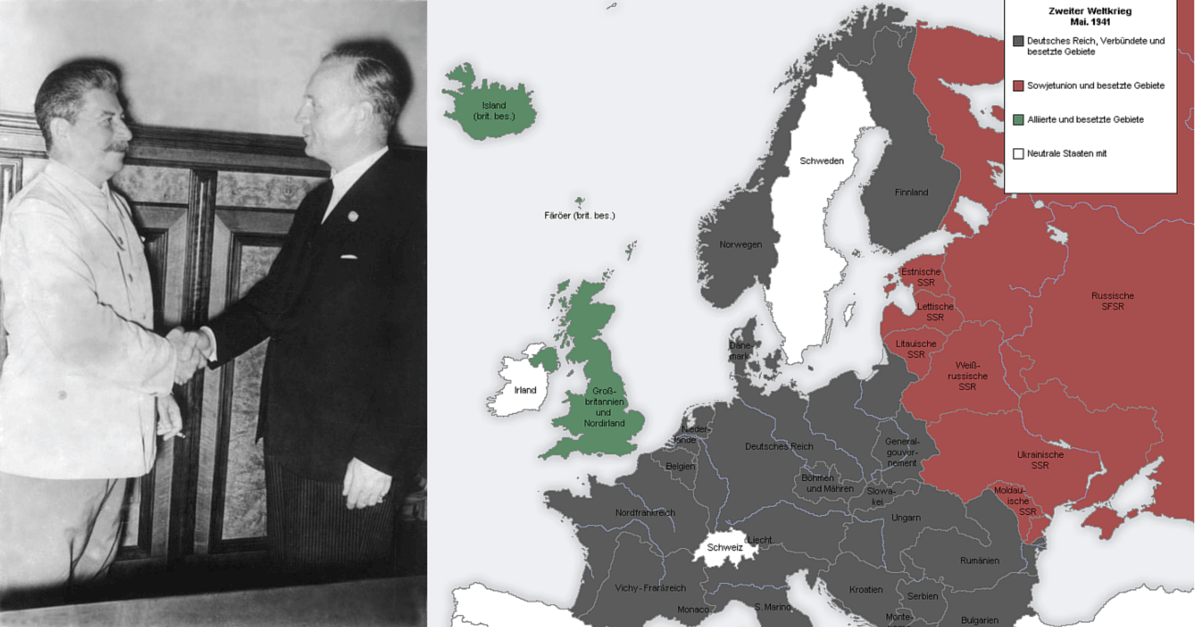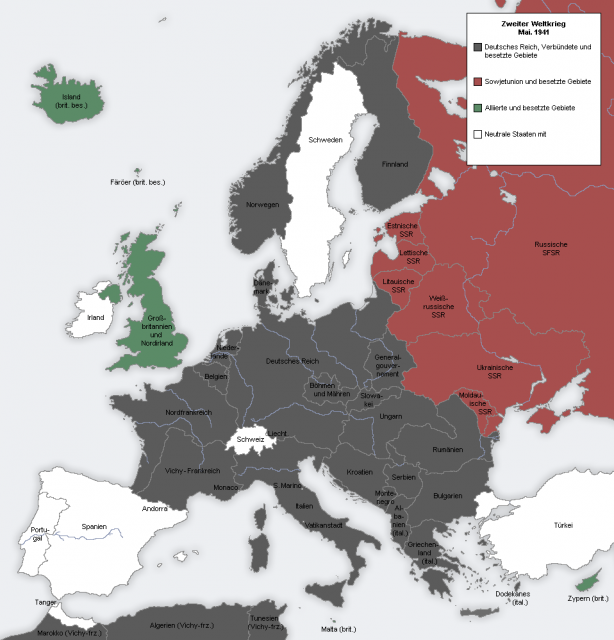
In the midst of VE Day 70th anniversary commemorations in Europe and around the world, Russian President Vladimir Putin has publicly upheld the famous pact that the then Soviet Union made with Nazi Germany to carve up eastern Europe between them.
The declaration of support came during a visit by German Chancellor Angela Merkel.
The Nazi-Soviet pact was made between Germany and the Soviet Union in 1939, prior to the Germans turning on the Soviet Union and invading it later in 1941 as part of its Operation Barbarossa. They agreed to split eastern Europe between them in a pact created by Molotov and Ribbentrop in an effort to secure non-aggression between the two countries.
Putin says that the then Soviet Union realised it had to deal with Germany’s expansion and its ministers made the pact to ensure that there would not be war between the two countries.
Putin was asked the question about the pact, since his culture minister Vladimir Medinskyhad recently publicly praised the pact as a triumph of Stalin’s diplomacy.
Putin commented that he agreed with his culture minister in that the pact was made to ensure security for the Soviet Union.
Putin added that his country had been forced to sign the pact since an agreement had already been signed between Germany, Britain, France and Italy in 1938 in Munich, which assumed that there would be no united front against Germany.
![]() Situation in Europe by May/June 1941, immediately before Operation Barbarossa [Via]
Situation in Europe by May/June 1941, immediately before Operation Barbarossa [Via]
Putin says that there had been many efforts by the Russians to estabilsh anti-Fascist sentiment in Europe, but that it did not succeed. Prior to these comments Putin had always condemned the pact as unethical, the Yahoo News reports.
He said that looking back any agreement any country made with the Nazis was morally unacceptable, and now people realise that none of them were going to be upheld.
On the other hand, Merkel condemned the pact, which would have divided up Poland and the Baltic states between Germany and the Soviet Union. She says she considers the pact unlawful.
Merkel visited Moscow a day after Russia held a massive military parade in Red Square to mark VE Day, but at which most western dignitaries did not attend.
Merkel stood with Putin to lay a wreath at the tomb of the Unknown Soldier at the Kremlin walls in commemoration of all the Russian soldiers who lost their lives during the war.

